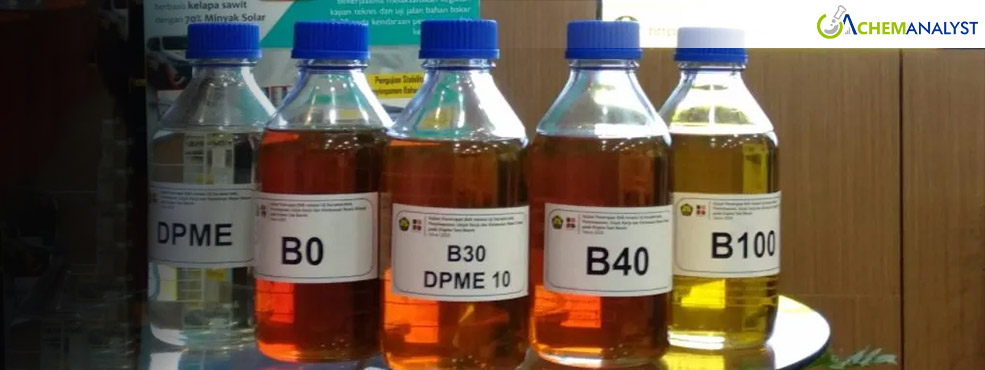Welcome To ChemAnalyst

Indonesia is set to officially implement its B40 biodiesel program starting January 1, 2025, as part of its commitment to reducing carbon emissions and promoting sustainable energy. The B40 biodiesel, which is made from palm oil, is expected to cut carbon dioxide (CO2) emissions by up to 40 million tonnes annually. Coordinating Minister for Economic Affairs, Airlangga Hartarto, announced this during the 12th Ministerial Meeting of the Council of Palm Oil Producing Countries (CPOPC). He shared that Indonesia has already made significant progress in reducing CO2 emissions through the B35 biodiesel program, which has resulted in a reduction of approximately 32 million tonnes of CO2 annually. Building on this success, the B40 program aims to take these efforts further, with the goal of surpassing 40 million tonnes in CO2 emission reductions each year.
The B40 biodiesel is made by blending 40% palm oil with diesel fuel, which will replace the current B35 blend, where 35% of the fuel is derived from palm oil. This move is seen as a crucial step in Indonesia’s long-term strategy to reduce its carbon footprint and contribute to global efforts to combat climate change. Palm oil, being a major agricultural product in Indonesia, is not only an economic driver for the country but also plays a pivotal role in the energy sector through its use in biodiesel production. By increasing the palm oil content in biodiesel, the B40 program aims to further boost the use of renewable energy in Indonesia while also reducing reliance on fossil fuels.
During the same meeting, Malaysian Minister of Agriculture and Commodities, Datuk Seri Johari Abdul Ghani, expressed strong support for Indonesia’s B40 initiative, recognizing it as a significant step towards reducing global carbon emissions. He highlighted the importance of palm oil as a vital commodity for the world, underscoring the critical role that both Indonesia and Malaysia, as the world’s leading palm oil producers, play in ensuring a sustainable and environmentally responsible palm oil industry. Ghani pointed out that biodiesel made from palm oil has proven to be effective in cutting carbon emissions, particularly in the energy sector, where it can replace conventional diesel fuel and lower greenhouse gas emissions.
Ghani also emphasized the importance of making biodiesel production more widely accepted around the world, noting that the benefits of palm oil-based biodiesel in reducing emissions are increasingly recognized. As the global demand for sustainable energy sources continues to rise, he called for increased cooperation between Indonesia and Malaysia to ensure that palm oil remains a sustainable and viable resource for biodiesel production. Both countries, he argued, have a shared responsibility to drive the growth of the palm oil industry in an environmentally sustainable way, ensuring that it continues to meet global energy needs while minimizing its environmental impact.
The B40 program is not only a significant step in Indonesia’s national energy transition but also a critical development in the global move towards cleaner, more sustainable energy sources. By reducing emissions and increasing the use of renewable energy, the B40 biodiesel program demonstrates the potential for agricultural products like palm oil to play a leading role in addressing the challenges of climate change and energy sustainability. With continued efforts from both Indonesia and Malaysia, the palm oil industry can become a model for sustainable energy production, contributing to global environmental goals and supporting the transition to a low-carbon future.
We use cookies to deliver the best possible experience on our website. To learn more, visit our Privacy Policy. By continuing to use this site or by closing this box, you consent to our use of cookies. More info.
